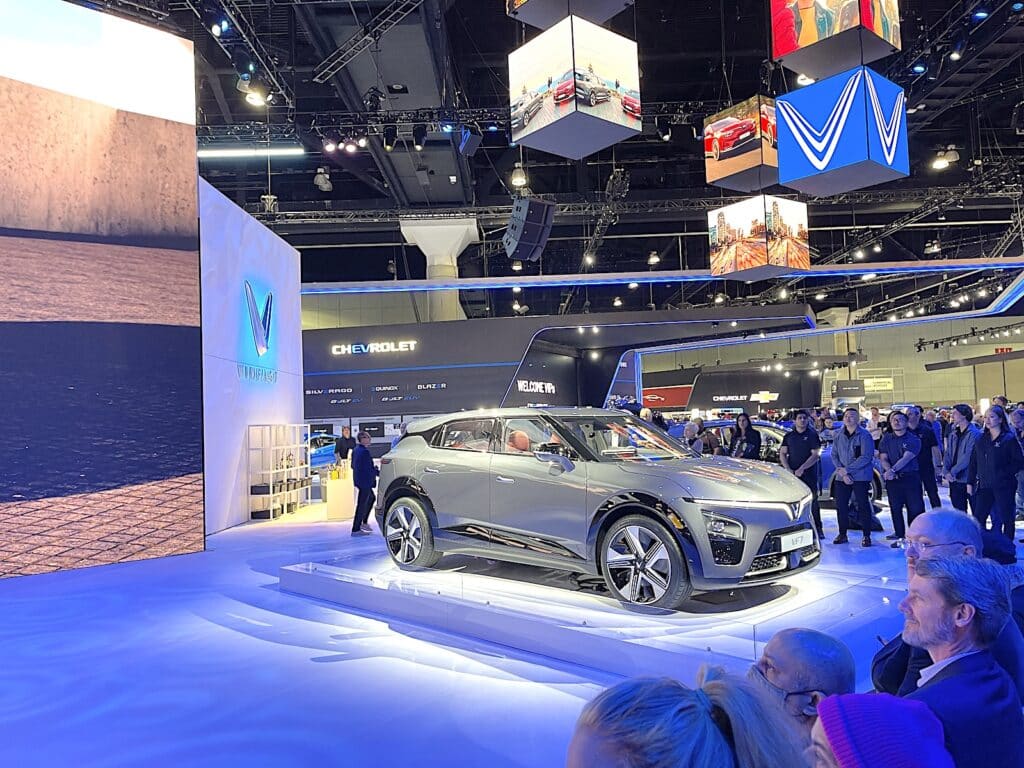Three of its top sales and customer service executives have resigned, Hanoi-based EV startup VinFast said Friday.

The departures include Gareth Dunsmore, deputy chief executive for global sales and marketing, as well as Chief Service Officer Craig Westbrook, one of VinFast’s top U.S. officials. The latest shakeup follows a string of recent changes at senior levels of the company. In February the automaker also confirmed plans to eliminate 80 jobs in the U.S. and Canada.
The Vietnamese manufacturer also faced a series of delays, only delivering its first EVs to U.S. buyers this month. That originally was scheduled to happen in December.
Management shakeup accelerates
Dunsmore, who had been working from Vietnam, left “due to personal reasons and we respect his decision,” VinFast said in a statement first published by Reuters.
Westbrook, along with Chief Marketing Officer Greg Tebbutt, left the company because of “changes in the management model and specific business requirements,” VinFast said.
The company has undergone a series of senior management changes since announcing in November 2021 it would shift directions to become an EV-only manufacturer. Only a month later, CEO Michael Lohscheller was out, replaced by Le Thi Thu Thuy, who had been serving as VinFast’s vice chair.
The elimination of 80 jobs in the U.S. and Canada in February, according to an e-mail first published by Bloomberg, was part of “the streamlining of our North American operations and there are certain departments affected by this.” The consolidation into a single operation was blamed by the company for the ouster of CFO Rodney Haynes.

Product development team hit by departures
Huy Chieu, who was leading EV product development, left VinFast in December. Chieu formerly worked at General Motors, as did the recently departed David Lyon, who had been serving as VinFast’s head of design.
One of their first big projects, the VinFast VF 8 started rolling off the company’s assembly line in Haiphong, Vietnam last autumn. It originally was scheduled to go on sale in the U.S. in December but the first of the midsize electric SUVs only was delivered to customers this month. And only short-range models, now called the “City Edition,” have so far been produced. A long-range version won’t be available until later in 2023.
The launch of a second model bound for the U.S., the larger VF 9, also has been pushed back until later this year. But in a January conversation, Westbrook told TheDetroitBureau.com that VinFast hoped to move ahead on the launch of two smaller, more affordable EVs, the VF 6 and VF 7 SUVs. It has not been revealed whether the automaker will stick to that accelerated timetable.
U.S. plant delayed

It has fallen behind on a number of other goals. On March 10, the automaker said it would push back to 2026, a 1-year delay, the opening of the new $2 billion assembly complex it is building in North Carolina’s Chatham County. The 1,759-acre plot will initially feature an assembly line for one or more battery-electric vehicle. The eventual investment could rise to as much as $6.5 billion, the automaker said when the project was announced in late March 2022.
VinFast blamed that delay on “procedural” issues, including the need to acquire multiple regulatory approvals.
Building a plant in the U.S. could help the automaker in multiple ways, including shortening supply lines and speeding the delivery process. With the complex expected to include a battery plant, it might also help VinFast qualify for U.S. EV sales incentives under the revised guidelines included in the Biden administration’s Inflation Reduction Act.
Shakeups could impact IPO plans
The plant delay and executive turmoil could impact VinFast’s plans to stage an IPO this year. That move was expected to raise at least $2 billion.
But analysts have grown concerned about the potential response by investors considering the slump in share prices for other EV start-ups like Lordstown, Lucid and Rivian. Several are teetering on insolvency, including Canoo and Faraday Future.
In its IPO registration statement, VinFast reported losses of $2.1 billion last year, on revenues of $634 million.







